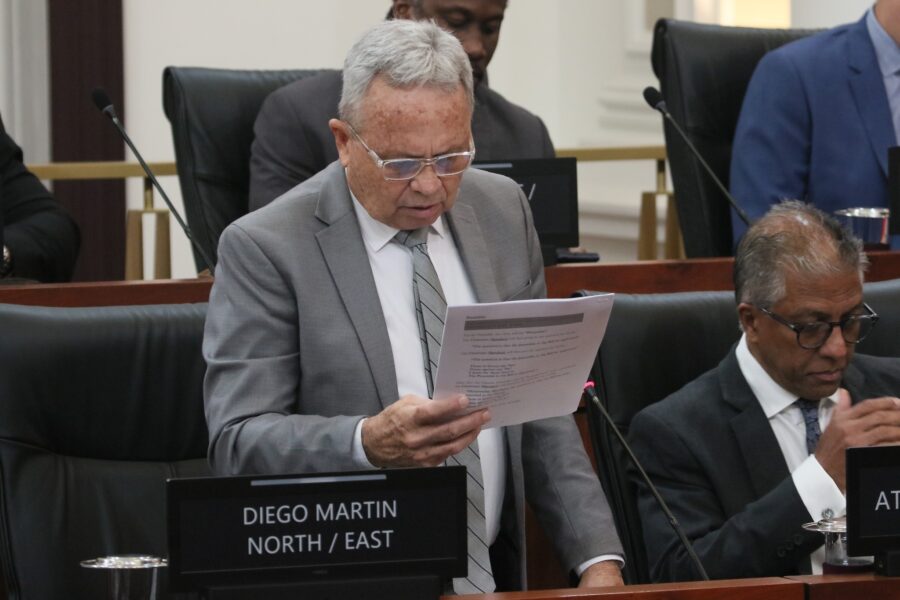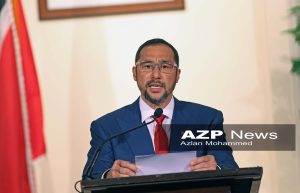ACTING Prime Minister and Finance Minister Colm Imbert says the government was “pressing on” to make Trinidad and Tobago a cashless society.
He was speaking at the National Financial Inclusion Strategy Consultation Workshop, One FinTech Ave, Tower D, International Waterfront Centre, Port of Spain on Monday.
He said, “I want to make it crystal clear that we in the Government of T&T are pressing on with our cashless programme.
“We believe it is the way to go. There are many countries in the world where cashless transactions are almost at 100%.”
Imbert questioned whether the resistance to a cashless society might be linked to non-compliance to tax, adding, “And if I digress, when I see the loud opposition by a small group to a cashless economy, I have to wonder, and forgive me for this, whether that is somehow used for compliance with tax.
“I have to wonder, because cash leaves no trace, but digital banking has a record.”
The acting PM said a cashless society empowers citizens.
He said, “In our view, financial inclusion is essential to long-term economic growth, poverty reduction, and social advancement.
“It is more than simply having a bank account. Apart from empowering our citizens who are left out of the formal financial sector, it encourages entrepreneurship in underserved groups, such as residents of rural areas, women, and small and micro businesses.”
He said the National Financial Inclusion Strategy was intended to providing the framework to empower citizens, particularly the unbanked, with the tools and resources they need to be financially resilient.
Imbert said, “In T&T, according to the survey done by TTIFC this year which captured data from approximately 2,000 households across the country, it was reported that only 76% of our people own a formal financial account, whether with a bank, a regulated institution such as a credit union, microfinance lender, or a mobile money service provider, compared to 81% as reported in 2017 through the World Bank Findex Report.
“Therefore, we have witnessed a widening in the financial exclusion gap, or a reduction in financial inclusion, over the last five years.”
He said the Covid-19 pandemic would be partially responsible for this.
Imbert said, “Millions of people worldwide still rely heavily on cash – some are battling to hold onto it.
“This is the same for T&T, as cash is still heavily relied upon, particularly for low-value, high-volume transactions.
“The use of electronic payments is still low, with the total percentage of general transactions using the following payment methods (among others): cash – 63 %; debit card, 12%; credit card three per cent; online/mobile banking, two per cent; and cheques, over-the-counter transactions, etc., 20 %.”
![]()













